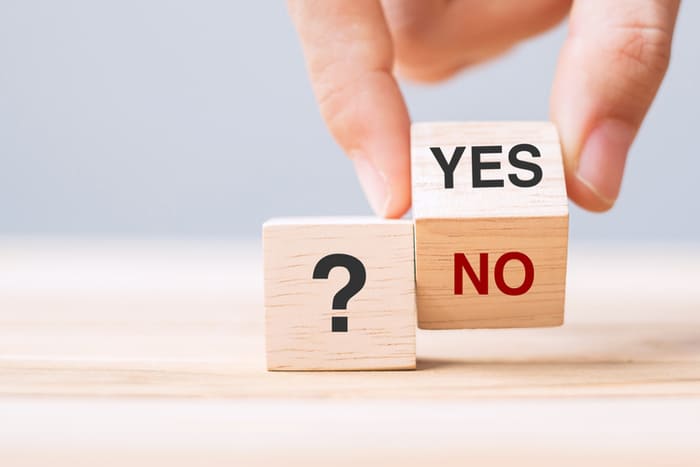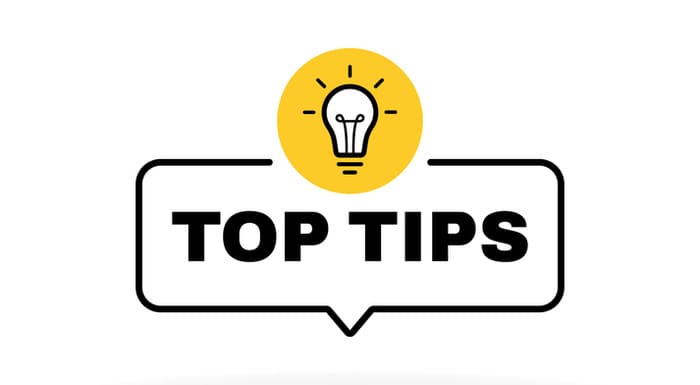If you have difficulty converting prospects to customers or you’re just struggling to close new deals, a discovery call template is a tool you need.
In B2B sales, a prospect will buy when they believe the person attempting to sell to them fully understands their needs.
A proven sales discovery process as described in our discovery call template is the best way to accelerate your sales results.
If you’re wondering how to hold a discovery call, read on!
What is a Discovery Call?

The discovery call meaning relates to a call, or a series of calls, designed to uncover whether your buyer is a good fit for what you sell.
A good discovery call is the key to proposing a product or service that meets the buyer’s needs, emphasizes urgency, and minimizes or eliminates any of their objections.
Another name for a discovery call can include a sales discovery call, discovery sales call, or sales discovery.
If you’re wondering what is a discovery meeting, it is similar to a call discovery. However, a call often refers to a discussion by telephone or virtually, whereas a session refers to a face-to-face conversation.
Discovery Call Objectives for B2B Sales
A good discovery call in B2B sales achieves several objectives, including
- Allows you to qualify your buyer.
- Identifies how your product or services can meet a current or future need.
- Demonstrates your interest in the buyer’s current circumstances.
- Educates you on how to position your product or service.
- Outlines language that can be included in your quote.
- Unlocks opportunities for upselling or cross-selling.
- Provides insight into decision influencers and budget parameters.
When combining a discovery call template with a simple qualification method such as the BANT framework, opportunities to assess and close new business will increase substantially.
B2B Discovery Calls: Template & Questions to Ask
Some common questions around discovery calls are:
- How do you structure a discovery call?
- Also, what do you say in a discovery call? As well as,
- How do you prepare for a discovery meeting?
A discovery call template ensures all the necessary steps to secure new selling opportunities.
There are several stages to developing a discovery call template for B2B sales, including how to prepare for, conduct, and record the results of B2B discovery calls.
The stages and a few tips on how to introduce them are as follows:
Stage 1: Schedule the Call

Despite popular belief, you cannot have a good discovery dialogue by sending emails or text messages back and forth with a prospect.
When you revert to only using written messages, you risk making an error or mistake due to misinterpretation of information.
Only through face-to-face or voice-to-voice discussions can you pick up on emotional cues uncovering sensitive areas, priorities, or future objections.
Remember, a call can be via telephone or some online video software like Zoom or Microsoft Teams.
Here are the steps to take to schedule your discovery call:
- Connect with your prospect and introduce yourself.
- Use provocative questions to peak their interest in your product or service.
- Suggest a further discussion to understand their business and needs.
- Provide several dates and time options on which to meet.
- Confirm the chosen date and time while on the call.
- Send a meeting invitation following the call.
Once the call is scheduled, you’ll want to prepare with some research.
Stage 2: Research Your Prospect

With a discovery call scheduled, you’ll want to do some basic research to prepare for the call.
The key is not to spend too much time in the research phase. Too much research can result in a discovery meeting with a preconceived notion of what your prospect needs.
The goal is to obtain information during the discovery call that will inform the options or solutions we propose. So although research is essential, it shouldn’t drive your conversations.
Here are the steps to research your prospect before your discovery call:
- Review the company’s About page on its website to understand its history.
- Review any recent press releases or news about the company.
- Review your prospects’ LinkedIn profiles.
- Use google to uncover any additional information about your prospect.
This process should take you 20 minutes at the most. First, take some notes and prepare your presentation and discovery call script.
Prepare a Personalized Deck & Discovery Call Script
It is good to have a brief personalized presentation ready to aid in the discovery discussion if your prospect has significant questions about you, your company, or the products or services you sell.
Additionally, a discovery call script and discovery call checklist are resources you should have at the ready to ensure you don’t miss asking essential questions or steps in your sales process. At a minimum, your script should include:
- The main agenda points to address.
- Key discovery questions that will support configuring a proposal or quote.
- Value statements about your product or services.
- Calculate return on investment (ROI) to share with your prospect.
- Clear next steps to ensure the sale progresses.
Stage 3: Start the Discovery Call: Build Rapport

At the commencement of the discovery call, you should build rapport rapidly. Building rapport involves incorporating the following into your discovery dialogue:
- Personalized questions and discussion with the prospect (5 minutes)
- Brief introductions (5 minutes)
- Confirmation of the goal of the call (1 minute)
- Inquiring if the prospect has points they’d like to address (2 minutes)
- Validation of an estimated wrap-up time (2 minutes)
These five steps will ensure you build rapport with the prospect and have a productive discovery call.
Call Questions That Help Build Rapport
To ensure rapport is built during this stage, you must ask good discovery questions. Some examples of the best sales discovery questions to use are below, although you’ll have to select those that are most appropriate for the conversation.
- Is now still a good time to speak?
- What are your goals for our meeting today?
- What is the one thing you’d like to take away from our call today?
- Are there some points you’d like to ensure we discuss today?
- Regarding your time, when would you like to have our call wrapped up?
- How much time do you have available today?
- How will you measure the success of our call today?
Stage 4: Learn About Your Prospect

You need to learn more about your prospect, priorities, and needs during the discovery call.
When done correctly, this stage builds a connection between your product or service and your prospect’s personal and professional needs. Most importantly, it provides you with the information necessary to construct a proposal that converts.
Sales Discovery Questions: Learn About Your Prospect
Discovery questions that help you learn more about your prospect include the following:
- How long have you been with the company? In this role?
- Why is this a priority for you now?
- How would this product or service support you in your role?
- Is there something we could help you with?
- What could we do following our meeting that would be helpful to you?
- How would you like to see this process proceed?
Stage 5: Empathize & Evaluate
Although you’ve researched to ensure you are reaching out to the correct type of prospect, it’s best to reconfirm this before you move too far along the sales process.
By asking some direct questions, you can requalify your prospect, confirming who may be involved in, or have influence over the buying decision.
Sales Discovery Questions: Qualify Your Prospect
Some of the best discovery questions for sales to qualify a prospect include:
- Who will make the final decision relative to investing in our product/service?
- Will the decision to invest be yours?
- Are there others who will have a say in making the final investment decision?
- Is there someone else we should also be meeting as part of the buying decision?
- What will the approval steps for investing in our product/service look like?
- Are you the key decision maker for this initiative?
Stage 6: Handle Objections

The objections that your prospect shares will indicate that your discovery meeting is progressing well. These might be in the form of questions or statements made.
Objections are a normal part of the discovery process. The following are some common objections you should be prepared to discuss:
Trust Objections: The prospect doesn’t trust that you, your product, service, or company, can satisfy their needs or deliver on your promises.
Authority Objections: The prospect can’t make the purchase decision independently, delaying further discussions and avoiding buying decisions.
Need Objections: The prospect suggests your product or service isn’t a fit for their specific needs.
Price Objections: The prospect suggests your product or service is too expensive compared to what they expected to spend.
Timing Objections: The timing for delivery of your product or service doesn’t meet the prospect’s expectations.
Solution Objections: The prospect doesn’t see a fit between your product or service and their specific need.
Stage 7: Discuss Solutions & Timelines

As your discovery dialogue continues, you’ll begin to refer to your presentation. Using the presentation as an aide, not a crutch, is essential.
As you explore needs, use slides from your presentation to share examples of how your product or service would address these needs.
By balancing your time between referencing slides and asking questions, you keep the conversation focused on your solution and how it will achieve your prospects’ needs. Most importantly, you’ll maintain the attention of your prospect.
As you present your product or service, inquire about the best time to introduce your product or service. If the sale is long-term, focus on the value of introducing your product or service right now.
Rules for discussing Solutions and Timelines:
- Highlight aspects of your product or service that deal with your prospects’ needs.
- Speak in terms of the value your product or service will provide.
- Reference your product or service as an investment rather than a cost.
- Discuss the return on investment (ROI) your product/service will provide.
- Use ROI to reinforce the importance of investing in your product or service now.
Stage 8: Schedule Next Steps & Follow Up

Upon completion of your discussions with the prospect, the final stage of your discovery call template is to set clear next steps.
Questions that Establish Next Steps
Examples of questions to establish the next steps include the following:
- Where would you like to go from here?
- What are the next steps you believe would make sense?
- Would it make sense to look at some pricing options?
- When would be a good time to meet next?
- How would you feel about a demonstration of our product/service?
Once you’ve completed these eight stages, you’re ready to provide a quote or proposal and have a follow-up meeting.
With this in mind, there are some tips you’ll want to include to ensure your discovery call goes as smoothly as possible.
Discovery Call Checklist: 7 Tips for Conducting Smooth Discovery Calls

Every discovery discussion is different; however, following these eight steps will improve your chances of closing the deal.
If you want to improve these chances further and shorten the time between initial contact and closing the sale, use the following tips.
☑ Tip 1: Limit Length of Call
Keep your calls or online presentations to under one hour in length. More importantly, always show up five minutes early, and do your best to end five minutes before the scheduled completion time.
☑ Tip 2: Add Value
Making a buying decision is difficult. But, as sales professionals, we build trust and rapport when we put our prospects first.
You can set yourself apart and add value by making each call about the prospect, offering your support, additional information, and other resources to assist in their decision.
☑ Tip 3: Fully Understand Your Prospect
In the early part of your discovery call, ask open-ended questions. Doing so allows your prospect to elaborate and will provide you with the intel necessary to give a robust proposal or quote.
☑ Tip 4: Converse, Don’t Interrogate
When you ask open-ended questions, allow your prospect time to answer fully. Periodic pauses or silence after you ask a question is okay.
If you want to learn more, ask your prospect if they can elaborate more on their response.
☑ Tip 5: Track Your Outcome
Your time is valuable, so you’ll need to track your success during discovery calls. Critical areas include the number of qualified & disqualified leads you meet, which questions get the best response, and the most common objections.
When you evaluate yourself, you’ll identify the best practices to include in future calls.
☑ Tip 6: Resist Selling
Despite your role as a sales professional, do your best to focus on building your prospect’s trust. Remember, you are here to serve and support them, not sell to them.
Resist the urge to jump to a solution. The information you learn might be commonplace, but this is an entirely new discussion for each prospect.
☑ Tip 7: Set Up Tech
Assure that any technology you use (i.e., Zoom/video calls, microphones, demonstration/decks, passwords, meeting lead privileges, etc.) is ready and as problem-free as possible.
The experience you provide your prospect sets their expectations for future adventures with your company.
Discovery Calls: Templated Scripts and Preparation Yield the Best Results
A discovery call template provides you with the resources you need to convert prospects to customers, often in record time.
After all, every prospect buys when they believe the person attempting to sell them fully understands their needs.
© Shawn Casemore 2022. All Rights Reserved.


Share This Article
Choose Your Platform: Facebook Twitter Google Plus Linkedin